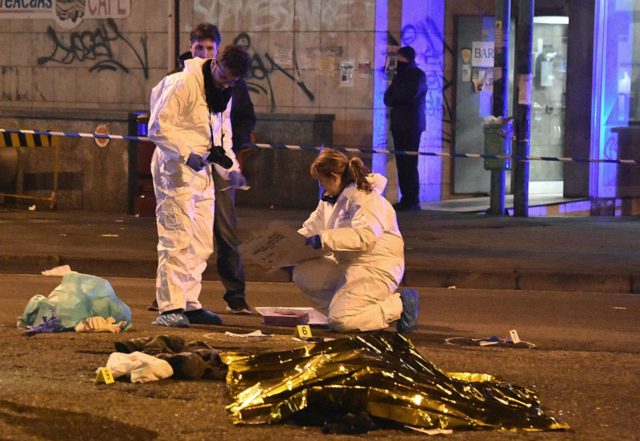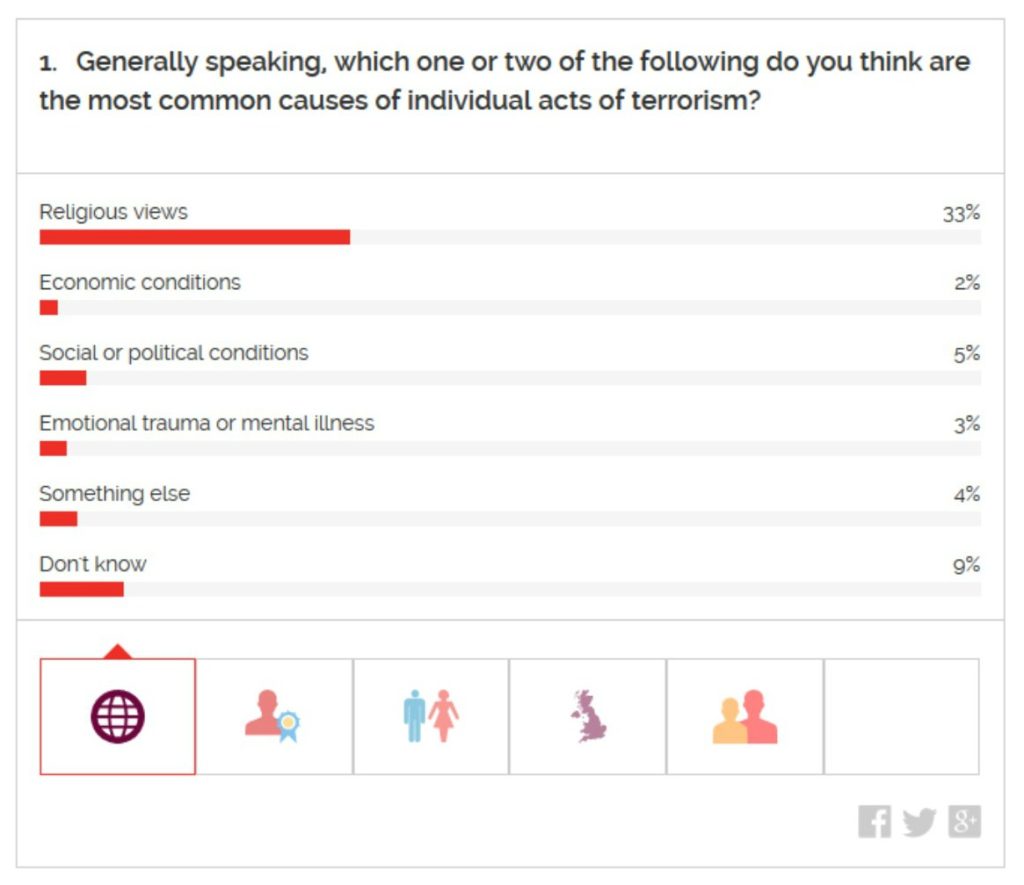Britons are more likely to think that terrorism is inspired by religious views than for any other reason, such as poverty or mental illness, a recent poll has found.
In an online poll by YouGov examining the causes of terrorism, in which respondents were asked to pick one or two from a list of possible causes for terror acts, 33 per cent of those polled opted for “religious views”.
The next most commonly chosen response was “don’t know”, which nine per cent of respondents chose, followed by “social or political conditions”, chosen by just five per cent of respondents.
The results stayed broadly consistent across all British regions, with those in London least likely to ascribe terrorism to religious views (27 per cent), and those in the Midlands most likely to do so (37 per cent). But in all regions, it was the most popular response by a significant margin.
Meanwhile, young people were half as likely as the elderly to ascribe terrorism to religion, with 20 per cent of 18-24-year-olds choosing that option against 41 per cent of those aged over 60. Young people were more likely to be unsure of the causes, with 13 per cent of 18-24-year-olds, and 15 per cent of 25-39-year-olds saying they didn’t know why people engaged in terrorist acts.
The poll surveyed 4,812 British adults on 22 December with the results weighted to be representative of the British population.
In a follow-up question, respondents were asked whether “terrorist acts that are carried out by Muslims do or do not tell us anything about the nature of Islam?”
Overall respondents believed that they did not, with 50 per cent saying no, against 33 per cent who said they did think Islamic terrorism said something about the nature of Islam.
Men were more evenly split on this question than women: 46 per cent of men said it did not say something about the nature of Islam, against 41 per cent who believed it did; whereas just 26 per cent of women agreed that terrorism said something about Islam, against 54 per cent said it did not.
The only demographic in which the trend was reversed were UKIP voters: 62 per cent of whom said that terrorism did reflect Islam, against 25 per cent who said it did not, with the remainder undecided.
The poll was taken just days after an Islamic terrorist drove a truck into shoppers at Berlin’s main Christmas market, killing twelve people. Following that attack, police in Bristol, England, deployed officers to the local Christmas market to protect British Muslims against Islamophobia.


COMMENTS
Please let us know if you're having issues with commenting.